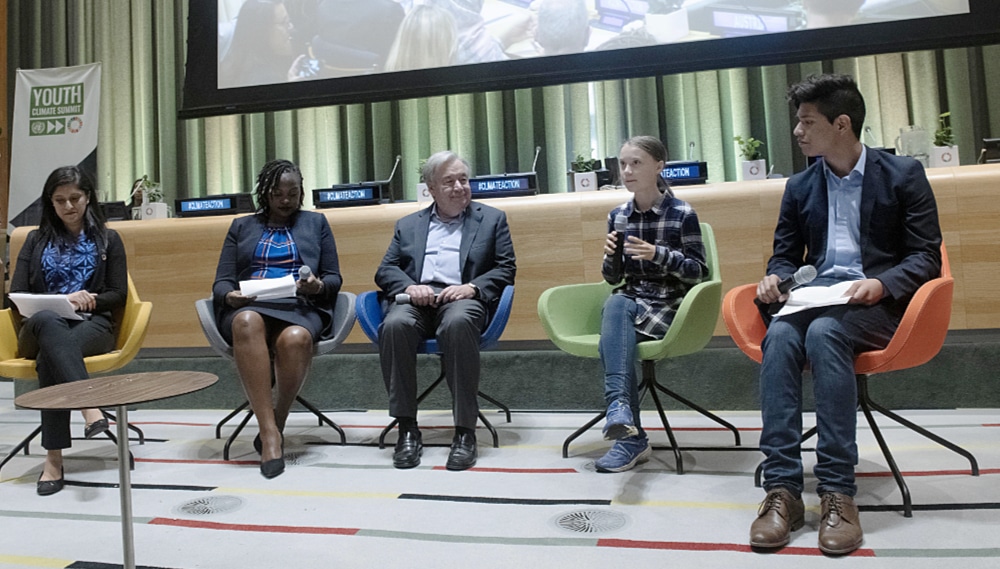”Nothing can stop the young people of the world,” Greta Thunberg said recently during the climate summit for young people in New York. The school strikes by young people have really made a difference. ”We have a momentum,” as UN Secretary-General Antonio Guterres proclaimed, sitting next to Greta.
It may sound harsh, but Greta is probably wrong about this. The world’s youth can be stopped. We who are a little older remember the global justice movement that emerged during the late 1990s. Large demonstrations were held at summits in different places with the message ”another world is possible”. Attac promoted the specific proposal of a currency transaction tax to create a more equitable global system. The movement really had power.
The momentum of a movement is fragile and can disappear quickly
But what happened? A small group of violent protesters managed to create a hostile and threatening atmosphere that was difficult to manage for authorities in different cities. It became increasingly destructive. A demonstrator was shot in Gothenburg in 2001 and in Genoa the same year a demonstrator was run over by a police vehicle and passed away. Then this movement lost its ”momentum”.
Now there are differences. The global justice movement at the turn of the millennium was primarily driven by students. In today’s movement there are younger people, many children. There may be better conditions today that discourage provocateurs. But the fact remains. A ”momentum” is fragile and can disappear as quickly as it was created.
The process can be compared to the way physics describes how a pendulum has alternating motion energy and position energy. Unless the motion energy is utilized in position energy, it is instead converted to heat and it‘s lost. Then the pendulum stops. However, when motion energy is converted to position energy, the energy is conserved and a continued pendulum movement is possible.
A movement’s energy needs to be transformed into social institutions
Similarly, a movement that grows and has power needs to transform its energy into something that exists when the movement dies out. It may be legislation or social institutions that have an inertia and do not depend on a strong movement to function.
What could capture the motion energy of the current global climate movement? It’s hardly a focus on individual choices or on the commitments of any individual nation. Of course, such contributions are important but not sufficient given the complexity and global nature of the issue. No, something is needed that allows a fair way to deal with the climate threat in a permanent way.
What would really make a difference are new forms of decision-making at the global level – a comprehensive reform of the UN. At present there is no democratic governance at the UN and the planet is instead in the hands of individual nations, all of whom primarily protect their own special interests when it comes to negotiating agreements. What if the climate movement could convince enough people to recognize the need for a world parliament mandated to pass laws on certain global issues in accordance with the principle of subsidiarity?
A world parliament to deal with the climate crisis
Already now steps need to be taken to capture the power. At Democracy Without Borders we consider the establishment of an advisory United Nations Parliamentary Assembly (UNPA) a first pragmatic step on the path to the longer-term vision of a world parliament. On Friday, October 25, we will stand on the Mint Market outside the Swedish Parliament and promote ”A World Parliament for the Climate” to pay attention to this particular road ahead.
The millions of strikers challenge us as adults to harness the good power. In the long term, a habitable planet is no longer a matter of certainty. Therefore, let us begin to establish the new global decision-making methods needed to deal with the climate threat. The climate movement‘s energy can be utilized better if we now start taking steps towards a world parliament.
This article was orginially published in Swedish on 22 October 2019 in Tidningen Syre.





